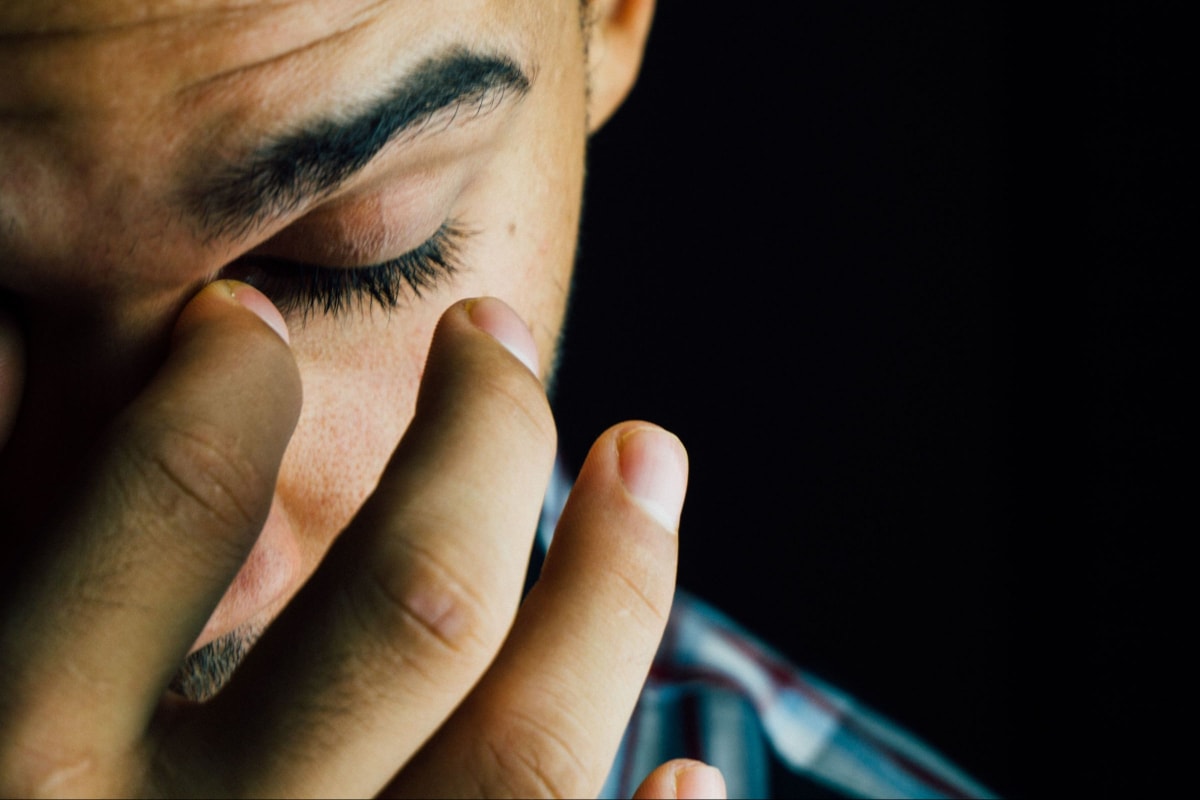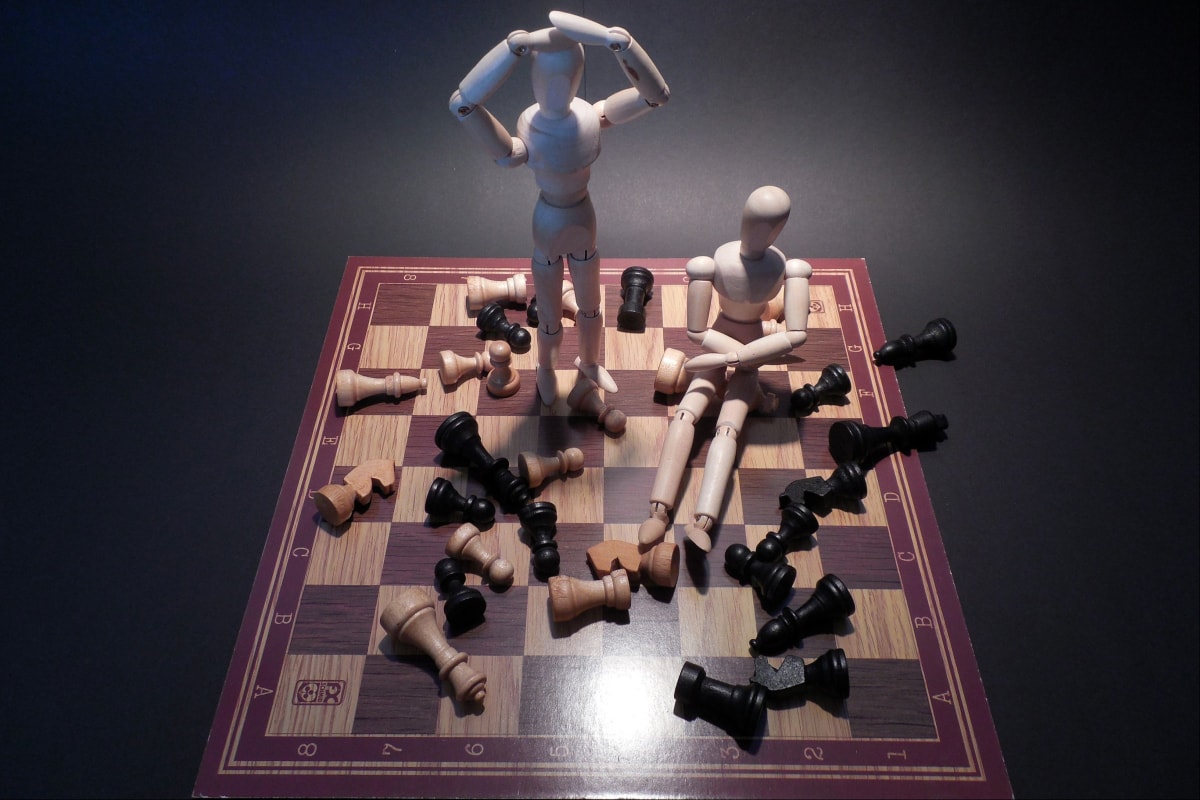Stress. Just hearing this word can already trigger unpleasant feelings or anxious thoughts.
The aim of this article is to explain its background, the triggers of stress, how it works and what are some techniques you can use to significantly decrease its levels.
Expat stress, and how to cope with the pressures of life abroad

About The Author
This is a guest post from Marta. For anyone who would like to learn more about intercultural business, mind and life, you can follow Marta on her blog Project Abroad.
She is a psychologist and trainer by education, HR professional by employment and an expat by choice, currently based in London, UK. She is combining her psychological, business and intercultural experiences to offer advice on successful living and working across cultures.
What are common situations that cause expat stress?
- Having countless long To-Do lists to be completed within unrealistic deadlines
- Partner and/or children not being convinced of the idea to move abroad, which can generate knock-on effects of stress around:
- will they be happy there?,
- is this a good move for our family?
- how would this impact our relationships?
- how do I get their buy in? And so on.
- Learning a new language intensively
- Having to constantly try to think and speak in a foreign language
- Trying to integrate and make friends in the new location
- Finding a flat/house
- Dealing with foreign bureaucracy
- Feeling alone in the new location and trying to figure out how to stay in touch with loved ones back home or in your previous location
- Finding a job abroad
- Being (unpleasantly) surprised about how living in the new country is a lot different from your previous visits as a tourist
- And many more…
But despite of all this, you still need to find a way to make it work.
Psychology of stress
Stress can be shortly described as: your perception of pressure and your body’s response to that perception. We talk about stress in situations when we are afraid of something, get angry or are extremely excited about something new. Our brain however often interprets these pressures as danger, something that needs our attention in this very moment, something life threatening.
On a body level, the responses to stress are related to releasing relevant hormones, mobilizing the whole body in order to either be able to escape the danger we’ve encountered or be able to fight it and therefore safe our lives. After each such intervention, our body is drained and needs some time to recover.
These days, the stress that we experience is no longer only related to life threatening situations. Very often we fell stressed when we are faced with something challenging, and we don’t believe that we have got enough resources to deal with it. Exams, first dates, job interview, wedding, death of someone close, health issues, pregnancy, moving abroad… We refer to these threatening, challenging or tough situations as stressors.
Phases of a stress reaction
According to Hans Selye, a big figure in the world of stress research, there are three main phases of stress reactions.
Alarm
This is the moment where your body gives you signals to notice the stressor and deal with it, even though you don’t think you have enough skills or resources to do so. Your hands may be sweaty, your heart beats faster, hormones like adrenaline or cortisol are released, maybe you just freeze and are not able to do anything or try to run away.
Resistance
Once you have dealt with that stress, no matter which strategy you used, your mind and body learn. They learn about whether this particular reaction to the stressor was successful or not, necessary or not, whether the reaction worked or not. If the reaction was successful, your resistance to a given stressor increases and all the body functions go back to normal.
Exhaustion
If you are under chronic, long-lasting stress conditions (eg. a long illness of yourself or someone close, a huge amount of pressure at work, unsatisfying relationship etc.), your body is in a constant state of mobilization, with “stress hormones” always present. It is getting tired of being in that state without ever coming back to normal. Long-lasting stress might lead to a number of disorders and health issues, including but not limited to heart illness, depression, sleep and eating disorders or addictions.
Strategies for reacting to stress
One of the very popular and illustrative descriptions of stress reaction types is the distinction between three: freeze, flight and fight responses.
Freeze
You might have had or have heard about such moments where you were just about to give a speech or a presentation; you are going up on the stage and… nothing. A complete black hole, no words in your brain, no ability to move, think of anything, it’s sort of like feeling paralyzed. That is how your body decided to deal with stress at this given moment. And this strategy was probably not the best one for that situation as it likely caused even more stress as a result.
Freeze response is a rather passive one, where you rely on the outside factors to sort themselves out. Common accompanying thoughts are along the lines of “Let’s just see what happens”, “What will be, will be.”, “I don’t think I actually need to do it.”,“That’s life! Nothing you can do about it”.
Example strategies: Writing a journal; Self-reflecting on emotions and underlying reasons for feeling stressed; Staying positive .
Pros: “Freezing” lets you stay in a given moment and reflect, without making any rushed or not well-thought decisions. It’s not a sustainable strategy on its own though.
Cons: This strategy does not move you forward and does not allow for adjusting in the long-term.
Flight
This is a common one when it comes to expat stress. So you have arrived in a new country and now need to go to the bank and set up your account, sign up for the doctors’ and do all those other administrative things. Instead, you are doing online shopping for house decorations, flowers, candles… What’s happening there?
You might potentially be rationalizing your online shopping by saying “I need to settle in the house first”, “I miss home and I want to feel comfortable in the new place first”. It’s not rationalizing if you genuinely prioritized this on your To-Do list and it is planned to only take a couple of hours. If, however, you are doing this to avoid the other items on your To-Do list, you might want to consider taking other actions instead.
Example strategies: Focusing on doing things we like instead of what would be more beneficial at the moment; Learning about the new location or adaptation strategies without implementing them; Avoiding doing the things we don’t feel comfortable doing.
Pros:
Helps to reduce stress instantly by doing something you like and enjoy and puts you back in a more positive mindset.
Cons:
Often has only a short-lasting effect as the thing you are avoiding will still be there and will need to be dealt with at some point.
Fight
Fight strategies are the most dynamic ones, where there is a lot of action involved. Action is often good, because it changes your reality and creates new opportunities.
When you choose to fight the stress by facing it and acting regardless of it, you force your brain to rewire and learn new techniques. If given techniques have worked, this in turn makes you feel more confident and comfortable. If you ever face a similar stressor in the future, you then know that you can use this technique to reduce the stress you will be experiencing.
Examples: Going out of your comfort zone and trying new things (new hobby, language course, going to meet ups etc); Learning and putting the new knowledge into practice; Actively reaching out to friends and family; Seeking help from someone with an outside perspective when needed.
Pros:
Action changes your reality and creates new opportunities. You won’t know until you try!
Cons:
If taking action and crossing one to-do after another off your list is the only strategy, there might not be enough space for reflection or winding down. This constant flow of to-dos might in turn increase the stress instead of reducing it.
Conclusion
None of the above is the right response to expat stress.
Each has its own functions, its own pros and cons. It’s important to identify situations where you freeze, flight or fight and reflect on whether that acts in your favour or not.
In some situations, the most positive way of reacting would be to escape. In others, you will need to take some action. It’s always a mix-and-match approach.
By observing what works and what doesn’t work for you, you can help yourself understand what your triggers are. Once you identify them, you can start thinking about which strategies would be best to use in given situations and start working on actively choosing how you react to stress.
Note from James from Live Work Germany:
A great book I have read about using adversity as the catalyst to become stronger, and overcome curveballs which life sometimes throws at us is The Obstacle Is The Way by Ryan Holiday. He draws from the teachings of ancient stoicism and it can easily be read during a weekend or a long-haul flight!










